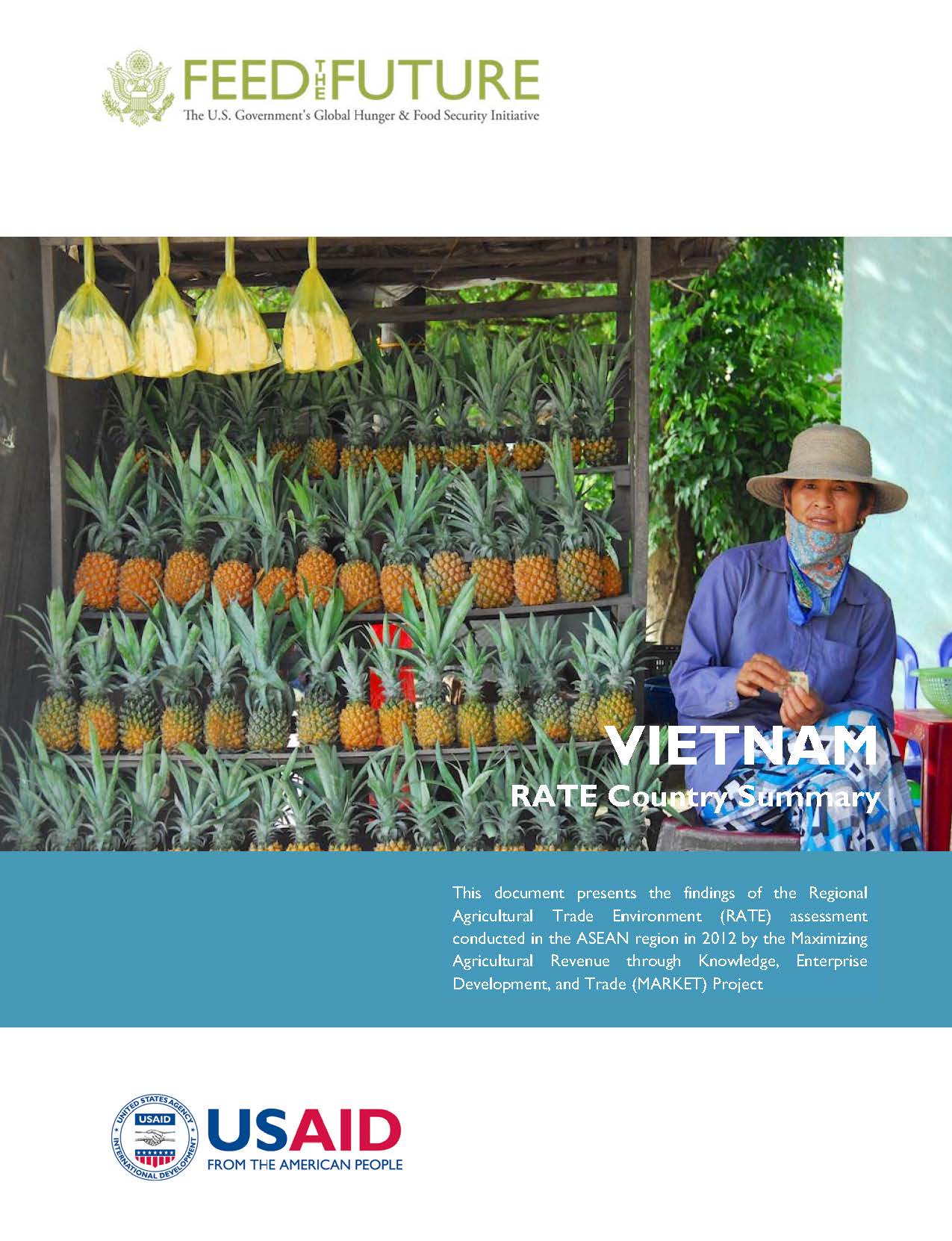Home » Vietnam Regional Agriculture Trade Environment Assessment
Speeches Shim
![]() (2 MB) Vietnam RATE Summary
(2 MB) Vietnam RATE Summary
In recent years, the Vietnamese economy has experienced remarkable growth—around 7 percent per year between 2000 and 2009, and more than 4 percent between 2009 and 2011— resulting in sharply decreased rates of poverty. The remaining poor are harder to reach; they face difficult challenges—of isolation, limited assets, low levels of education, poor health status—and poverty reduction has become less responsive to economic growth. Ethnic minority poverty is a persistent challenge.
At 21.6 percent of GDP, agriculture does not represent as high a contribution to the national economy as it did before the turn of the millennium, but in real numbers agricultural output has grown significantly.
The country’s advances in agricultural trade, including through investments in coffee, aquaculture, paddy rice, and other cash and
staple crops, have contributed in particular to reductions in rural poverty rates and both directly and indirectly to greater food security. A streamlined system for trade facilitation, allowing goods to flow in and out of the country more efficiently, along with significant strengthening of human resources, has bolstered the country’s reputation as an attractive trading partner.
However, among the tens of millions of Vietnamese households who have risen out of poverty over the past decade, many have
incomes very near the poverty line and remain vulnerable to falling back into poverty as a result of weather-induced or economic shocks.
Still, certain legal and institutional conditions in Vietnam aggravate the growing gap in wealth between the country’s urban and rural populations. Although Vietnam has committed to and made good on a number of structural reforms, a plethora of state-owned enterprises continues to dominate the economy. Equitization—the main vehicle used to restructure SOEs in the past—has slowed in recent years, prolonging inefficient systems and rendering the environment for private sector participation less competitive. In addition, an opaque and complex business licensing environment both discourages participation in the formal economy and undermines private investment, particularly in rural enterprises.
Access to finance in Vietnam is especially challenging, with high interest rates and low public trust in banks discouraging the growth of enterprises. These and other issues are highlighted in this summary of the RATE assessment completed in Vietnam.
Date
Wednesday, April 23, 2014 - 5:45am


Comment
Make a general inquiry or suggest an improvement.